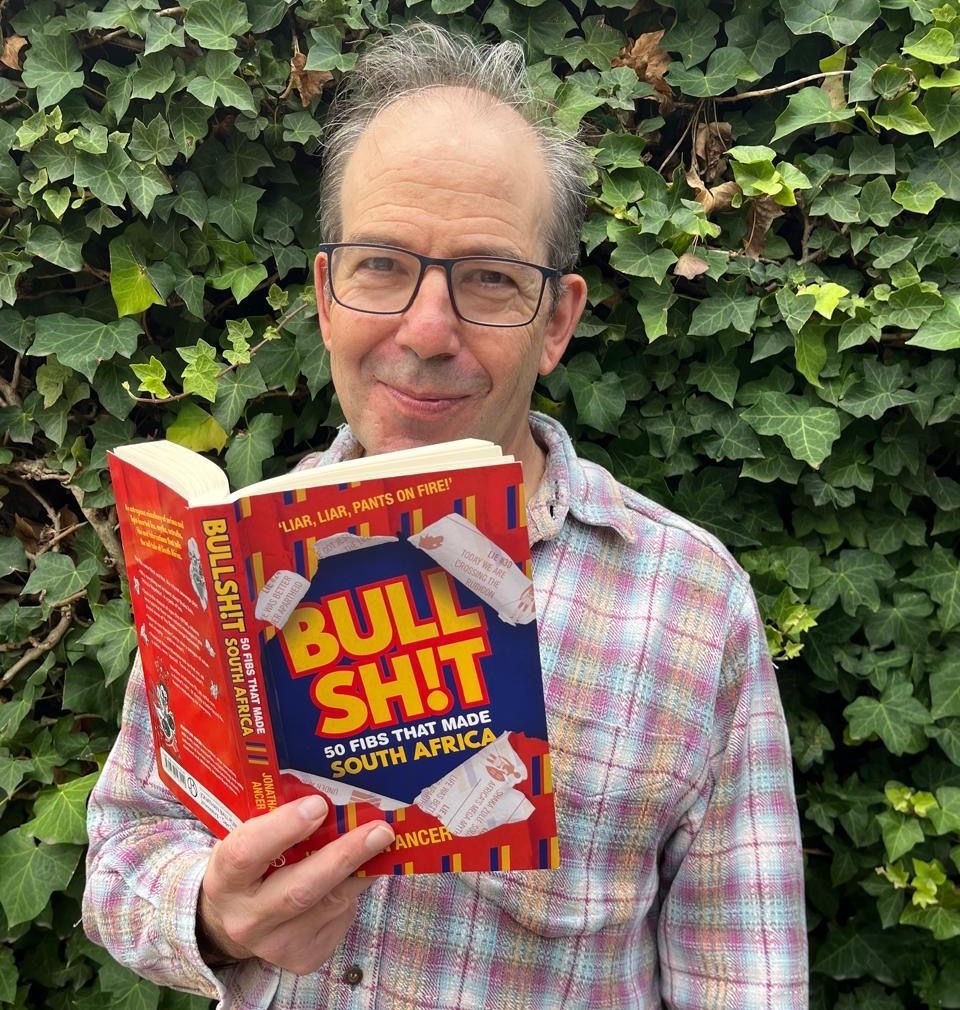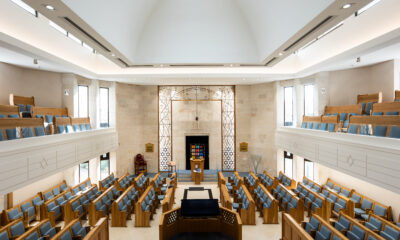
Lifestyle

Liar, liar, pants on fire: SA’s fabulist history
Journalist and author Jonathan Ancer is launching his latest book, Bullsh!t – 50 fibs that made South Africa. The SA Jewish Report chatted to him before the launch.
What inspired you to write this book?
Historians have examined the world through various lenses and perspectives, but I thought telling SA’s history through our lies would be an interesting, unique, and entertaining way to look at our country. I just didn’t realise how many fibs I would have to wade through!
I began by travelling back in time to look at the lies I’d been told. My memories took me back to primary school and the one-sided history I was taught about our country,
Why do you believe so many of these lies emanate from our politicians’ mouths?
Politicians are motivated to tell voters what they want to hear … and sweet lies are much easier to swallow than bitter truths.
What do you believe we should learn from this?
That we shouldn’t believe everything we’re told. Our democracy depends on citizens being able to separate the facts from the fabrications, and the proper from the propaganda. We shouldn’t spread misinformation and disinformation; and we should do what historians do: assess the credibility of the sources. We must also remember politicians’ lies when elections roll around.
Which is your favourite utterance of bullshit in SA and why?
My favourite political bullshit was spewed by the former Police Minister Nathi Nhleko when he told us that a swimming pool isn’t a swimming pool but a firepool. It’s my favourite because it was so blatant. He knew he was lying; we knew he was lying; and he knew we knew he was lying, but he continued to lie. For similar reasons, my favourite non-political lie was the Pretoria News insisting that it had the scoop of the century with its decuplets “exclusive”. The editor, Piet Rampedi, and his boss, Iqbal Survé, just kept doubling down on their lies.
And your worst?
A lie that made me angry was Thabo Mbeki’s utterances that HIV doesn’t cause Aids. Because of the Mbeki government’s obstruction of lifesaving treatment, more than 330 000 people died prematurely from HIV/Aids, and at least 35 000 babies were born with HIV that could have been prevented. And those are conservative numbers.
Also, Hansie Cronje and the cricket match-fixing saga upset me. Hansie was a national hero, an honest-to-goodness star South Africans could unite behind, so his betrayal felt personal because, in a way, he stole our innocence.
Loadshedding being over in 18 months was probably the most painful utterance of this nature for the country. Why do you believe Cyril Ramaphosa did it?
In South Africa, there are lies, damn lies, and promises to fix Eskom. Ramaphosa knows that a week is a long time in politics, and 18 months is a lifetime. It’s easy to make bold statements when you have to deal with the consequences of those statements only in the future. When Ramaphosa said in 2015 that loadshedding would be over in 18 months, he hoped citizens would forget – after all, who can keep up with all our country’s scandals? Now we no longer have “loadshedding”, we have “load reduction”.
What is it about politicians that makes these utterances acceptable?
They aren’t acceptable and when politicians lie, we must call bullshit. It’s up to journalists, civil society, and citizens to ensure that politicians are held accountable for what they say and do.
Can we ever trust a politician in SA? If so, why? If not, why not?
It depends on the politician. Who could trust Julius Malema, who flip-flops at the drop of a red beret? He has performed more flips than the Russian circus, and has had more flops than first-time cake bakers.
I think politicians have to earn our trust – and that means stop talking about delivering services, and actually deliver services.
Who are the top fibbers in the country?
The penultimate chapter of Bullsh!t lists SA’s top-10 fibbers. If I had to list all lying politicians, the book would be a telephone book of names, so I picked one fabulist to represent the lot – Bathabile Dlamini – whom I could call a liar without fear of being sued for defamation.
Another liar on the list is Nongqawuse, the 15-year-old “prophetess” who had a vision in 1856 that the ancestors had appeared to her and told her the amaXhosa must slaughter their cattle and destroy their crops and grain stores. If they did this, there would be an era of prosperity.
The Xhosa slaughtered hundreds of thousands of cattle and burnt their crops. By the end of the following year, tens of thousands had died from starvation.
Coming in at number two is Carl Niehaus, who, even in our notoriously shameless country takes chutzpah to Himalayan heights. With all his lies, the one that captured the nation’s imagination was killing off his poor mother multiple times. When it comes to shame, the dude is in a league of his own.
But he’s still not SA’s most shameless liar!
Other than politicians, which group of people are best known for fibbing and why?
Prophets who perform “miracles” every Sunday for their congregation – they make people in wheelchairs walk, spray Doom in the faces of terminally ill people to cure them, take selfies with G-d, and raise the dead.
Very similar to them are con artists. If you take a deep sniff, you can probably still smell the audacious pyramid scheme that left a terrible stench in South Africa 40 years ago. In the small Northern Cape town of Garies, sheep farmer and serial swindler Adriaan Nieuwoudt launched a Ponzi scheme that is considered the defining scam of the 1980s – not only in SA, but worldwide. The scheme was based on vrot milk. And then there’s Markus Jooste. Why do they fib? To fleece desperate people out of their hard-earned money.
What do you hope readers will gain from this book?
My hope is that this eclectic mix of falsehoods will give readers a peek into SA’s past from a very different angle, looking through the prism of lies to see how untruths made – and sometimes unmade – the country. I hope it will be a fun way to learn about our past, and remind them of forgotten moments in our history.
What do you believe is the impact of lies on our psyche? Should we believe anything people say? If so, why? If not, why not?
It impacts on our trust. While doing research for this book, I came to realise that we all lie – little lies, weird lies, white lies, unconscious lies, big lies, colossal lies. We lie to our foes and our friends, we lie to authority, we lie to our colleagues and our family. We lie to the internet: “I have read and understood the terms of service”. We lie to get out of trouble. We lie for fun. We lie for no reason at all.
I think what’s important is to take what people are saying with a healthy dose of scepticism, to question everything and everyone. I also think it’s important not to lie to ourselves. Finding the truth requires humility – this will allow us to accept that our truth isn’t necessarily the truth; and truth can exist beyond our truth – and that’s the truth.
Writing in a light hearted and comical way isn’t easy for a journalist. How did you make this genre work for you?
Journalists don’t have to be so serious all the time. They can approach stories with humour and a light touch, making them readable and relatable. I try to achieve this by integrating my experiences, using satire, and playing with words. (I love a good pun.)
What’s next for you in the book writing arena?
Perhaps it’s time to turn to fiction – that’s a novel idea – and write a book about how South African decuplets were kidnapped by a tech billionaire as part of his diabolical plan to take over the world. Wait a minute … maybe that’s not fiction.
- Jonathan Ancer’s book launch will be at the Gardens Community Centre on Sunday 21 July at 14:30 for 15:00. RSVP to events@sajewishmuseum.co.za










